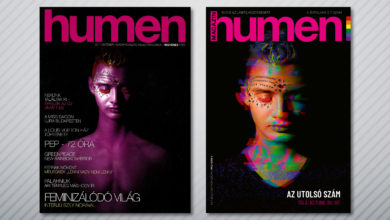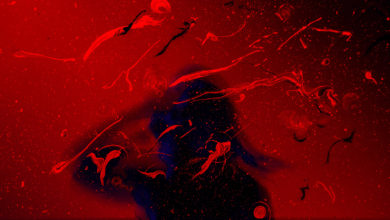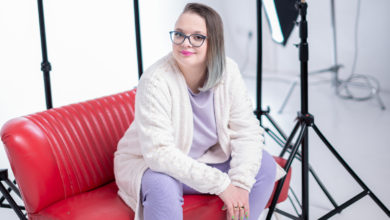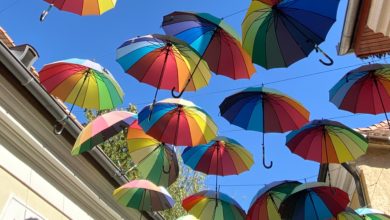„First I am Christian, then Hungarian, then gay”
The story of a gay man who took Pope Francis's words seriously
“I have nothing to fear since you live within me,” so goes one of my favorite Taizé chants which popped into my head when I heard the story of Benedek. He went from being a bad student to a pastor beloved by his followers, and then had his life shattered by Pope Francis’s rejection of gay priests – or so it might seem to an outsider.
There are many paths to a religious life. Benedek’s – whose real name we are not revealing at his request – began in childhood. Born into a Roman Catholic family, he was raised by his parents in the faith. In primary school he attended a religious study group, where he initially stayed for the good company. He got along with the other boys, the priests who taught him were kind, loving and treated them with respect despite their young age.
He loved the atmosphere of the church, the community, the intimacy, the singing, the good music. He liked the life of the priests and the way they treated people. “They were men, but not machos. They were decent, sensitive men,” he recalls. It was the first half of the 1980s, the priests Benedek met had all suffered a lot in the decades before, and persecution and obstruction were not unknown phenomena even then.
“Going to church was a testimony of integrity. Those who went to church also showed resistance. It was a message that they were not a friend of the system.” The boys were taken to church camps in secret, not even their own parents knew exactly where they were going. All this repression and prohibition lasted until 1988, when Pope John Paul II visited Austria, after which the regime relaxed its grip on the Church.
Benedek first thought of becoming a priest at the age of 12. At a family event, he told his mother, who was not particularly surprised by the announcement; she just wanted her son to be happy. Soon after, Benedek drifted away from faith and the church, in part because of his poor school performance. One year he failed several subjects and had to repeat a class, prompting the old ladies at their church to ask: how could such a bad student be an altar boy?
He felt humiliated, and on top of that, he already knew that he was gay. It was the early nineties, when there was no internet, hardly any dating, and AIDS was rampant, communicated everywhere as a gay disease. There was no sex education, not even about heterosexual intercourse. At most, young people learned from each other with the help of magazines brought from Germany, for example.
After graduation, Benedek lived temporarily in Transylvania, the land of his ancestors, then moved home and worked as a postman in Budapest for three years. Slowly, he regained his faith and matured into the priestly vocation – this time as an adult. In the mid-nineties he went to a seminary. In the six years he spent there, the question of whether gay men could be priests never once arose. The only time it came up was once through a bishop who advised them that if they were gay, they should not ordain themselves because they would suffer a lot.
Benedek, however, still graduated from the seminary and was ordained a priest. He loved his vocation very much. He loved his congregation and they loved him. All the while he struggled with his homosexuality. “The Roman Catholic Church teaches that it is not the inclination that is sin, but the action. A gay man is called to chastity. The Roman Catholic Church is more lenient in this respect, because the Reformed, for example, say that such a person is condemned to damnation. In the eyes of the Catholic Church, any sexual act outside marriage is a sin, whether it is committed by a heterosexual or same-sex couple.”
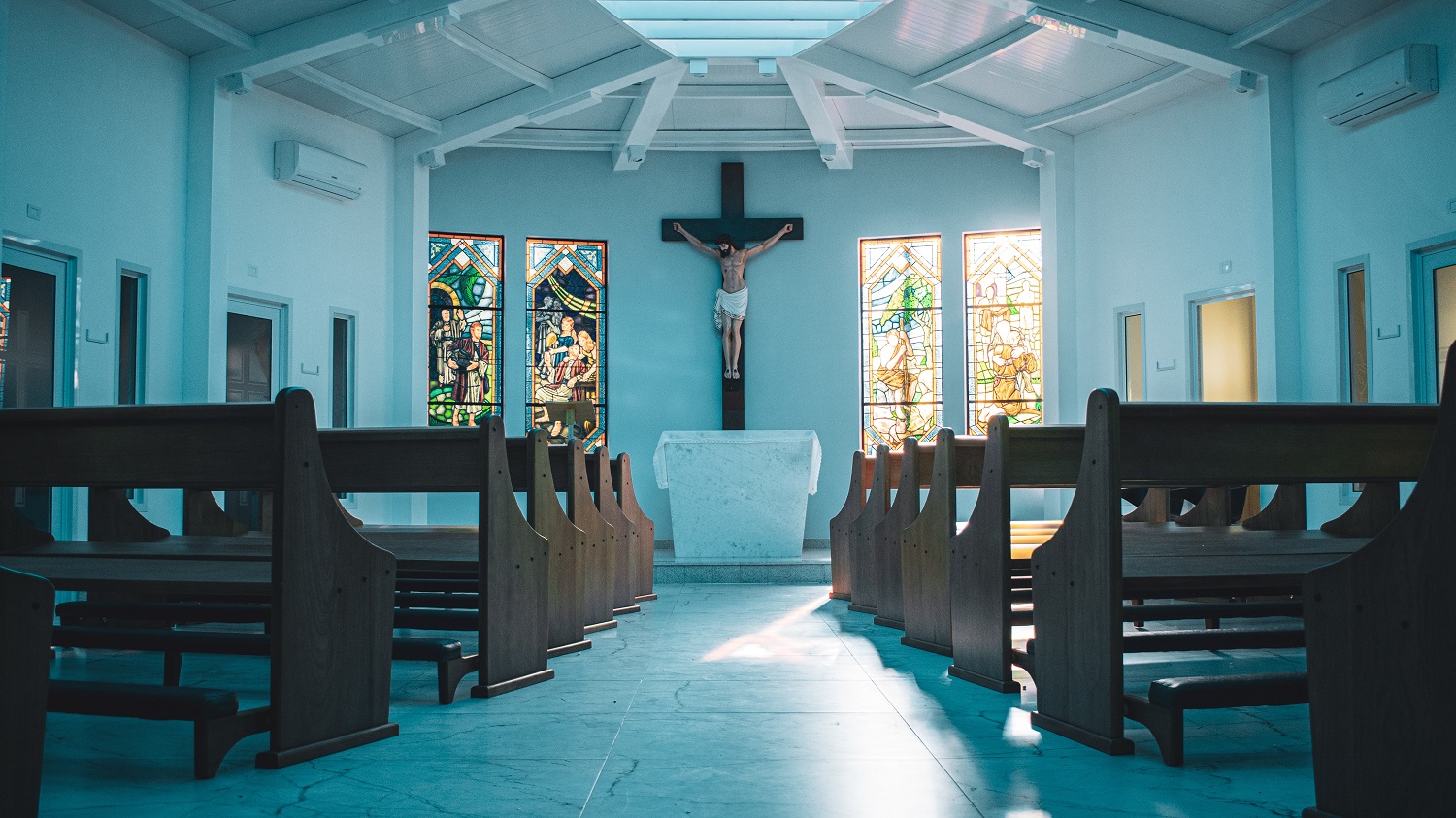
As the years went by, his self-hatred turned into acceptance. In the autumn of 2018, he met several gay men outside the church. He saw that these men found a balance in their lives, not kicking themselves all day long for wanting to change. They also made it suddenly much easier for him to accept himself, because he knew he wasn’t alone. But no one knew he was gay at the time; only some suspected it.
However, in December 2018, Pope Francis said something that changed everything: If you are gay, leave the priesthood! – was the order, which Benedek thinks was a response to the pedophile scandals. But everything inside him collapsed at that statement. He began to look into what exactly the Church’s teaching was. “It is indeed written in the Instruction for the Education of Priests since the 1970s that ‘certain’ people should not be ordained priests and should be excluded from the seminary,” he shares his discovery from three years ago. Subsequently, in spring 2019, he came out to several people including his parents. They all initially discouraged him from breaking with his vocation.
“It’s as if someone you’ve lived with for 24 years doesn’t say that his love for you has changed, that he loves you differently than he once did, but that he never really loved you.” Benedek’s world was slowly falling apart. For two years he had been debating whether to talk to his bishop, his superior in the Church.
He could not live a double life. “Since I have accepted myself, I could not represent a different doctrine.” He had many sleepless nights and spent much time in prayer. He was about to throw away a whole life. He finally went to his bishop in September 2020. He told him about his gayness and all that had been stirring inside him in the long months leading up to their conversation. His bishop was in tears. He asked if he would go to conversion therapy where he would be “cured” of his sexual orientation. Benedek had a clear answer. They parted ways.
The bishop allowed Benedek to say goodbye gracefully, but asked him to refrain from public activity. He said three farewell Masses on his last day and one last Mass that evening for his friends and the Mozaik Christian Community – a Christian community of LGBTQ people he began attending in the winter of 2019 and has counted on ever since. He even blessed them one last time.
Only a few members of his congregation knew why he was leaving, and it was the same with his fellow priests. The bishop had left it up to him to come out to whom he wanted to. Knowing the reason, many did not understand his decision, but he didn’t want to be a time bomb for the Church, he didn’t want to bring shame on them and on God. He loved what he did, but finds systemic change unthinkable in the current climate. At times he feels he would be content just to come out as gay in front of the congregation.
Benedict still goes to church on Sundays when he can. He loves and respects his church. He doesn’t even mind if his life looks like a shattered shell from the outside. He has been through a cleansing. “I’m thankful to God and happy to be gay.” He is sometimes confused as to why it happened in the middle of his life, but he doesn’t hold a grudge. He has accepted his life as it is.
There is peace, calm and gratitude in him. For his friends, for his faith, for his gayness. He doesn’t think his life would be better otherwise. Of course, some people turned away from him after his coming out, and his circle of friends changed completely. “First, I’m Christian, then Hungarian, then gay. But first and foremost, I am a human being.” However, he notes that gayness is the topic that comes up most often these days, but this is understandable.
After leaving the priesthood, he felt the Providence all the time: he found a job, an apartment, good colleagues and bosses. Now he just wants a partner he can be happy with. “I am not beautiful, but I am nice to be with. I have my humanity, my faith, I’m not an insufferable freak.”
And what does he think about social issues? Benedek thinks we need to talk more to each other. We have to accept that there is a gay lifestyle today. In the past, these people were known as lonely aunts and uncles, but today that’s no longer the case, it’s a new situation. “Is everyone gay now?”, people sometimes ask. “No, it’s just that people are finally daring to admit who they are.” He knows it’s not all sunshine and rainbows now either, but young people are grateful to live in this world because they can’t imagine what it used to be like.” Benedek’s stand is proven by his actions. “I am grateful to my immediate family and friends, especially those who care for me on a daily basis. Through them I have experienced what unconditional love means.”
Dániel Waliduda
Instagram: @waliduda


